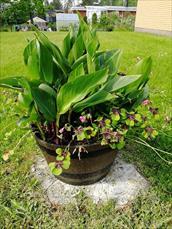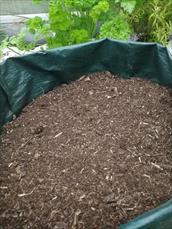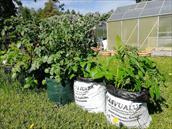Increasing consumer interest in vegetables and sustainable food will lead to a need to expand greenhouse cultivation. Peat is a common growing media in greenhouse cultivation; however, it is considered unsustainable and, given this, its availability in the future is compromised. Thus, new sustainable growing media products are needed to substitute peat and they also hold substantial potential for a profitable global business when their market acceptability, quality, safety, price as well as availability are secured. Our aim is to examine climate impacts of the field-to-greenhouse production chain of growing media produced from common reed and reed canary grass grown on wet peat fields. In the project, the growing media refiner and the greenhouse enterprises are involved, too, for assessing business perspectives.
The goals are 1) to resolve the bottlenecks of the production chains in paludiculture and enable this cultivation method for many farmers, 2) to create new businesses around sustainable greenhouse cultivation 3) to promote Finland’s goal for carbon neutrality and 4) to provide consumers the choice of peat-free products. We will reach these goals by documenting the environmental impacts, especially climate impacts, of the production chain, by assessing economic impacts and by comparing them both to peat. This facilitates branding of the common reed-reed canary grass growing media and encourages farmers to contract as material producers. This model resolves the current problems in harvesting and transporting the plant material and creates local nodes for growing media production. Climate-smart growing media are a solution for reducing greenhouse gas emissions from agriculture and peat production and for improving the ecological status of water bodies because 1) perennial plants will be cultivated in greater proportion of peat fields, 2) the ground water level can be raised wherever there are poorly drained fields (paludiculture), 3) the peat mining area will be reduced as the renewable growing media becomes more common, 4) biomass of common reed will harvested from water courses.



Project contact persons: Jaakko Karvonen and Tanja Myllyviita (firstname.familyname@syke.fi)